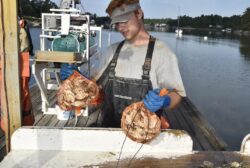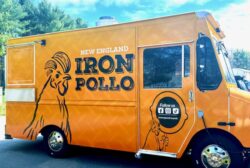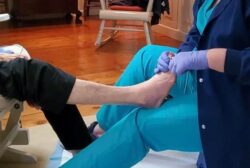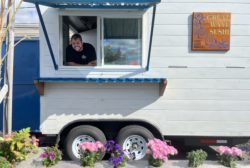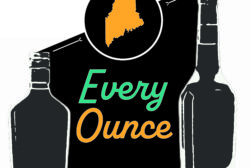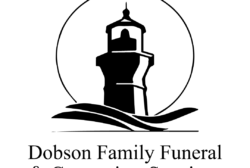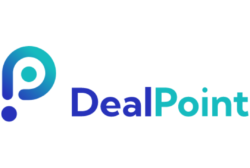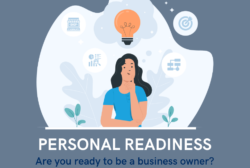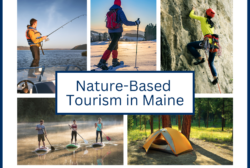HOSPITALITY & TOURISM
 Many hospitality and tourism-based businesses in Maine have been particularly hard hit by the Covid19 pandemic. Keeping employees and customers safe while operating at reduced capacity has many lodging and tourism businesses worried about cash flow as they head into winter. Many are wondering what to expect in the coming months or next season and how to plan for it.
Many hospitality and tourism-based businesses in Maine have been particularly hard hit by the Covid19 pandemic. Keeping employees and customers safe while operating at reduced capacity has many lodging and tourism businesses worried about cash flow as they head into winter. Many are wondering what to expect in the coming months or next season and how to plan for it.
Moving Your Business Forward
We’ve compiled key information to consider as you move forward. As always, never hesitate to reach out to a Maine SBDC advisor for one-on-one assistance.
Assessing your business will help you feel more informed and in control, something we all need right now. Assess Your Business to determine where you currently stand.
Operations & Safety
What will it take for you to continue to operate your business? As you look at your business, consider the impact and effect of your new protocols on the following:
- What parts of your business are most challenging due to changes in the wake of the shutdown and new protocols?
- Are you able to operate at full capacity? Do you have limited service offerings and/or hours? Do you need to space out customers in order to properly clean? How much interaction do you (or your employees) need to have with customers? What additional measures need to be taken?
- How is your location affected? What is needed to operate effectively and ensure protocols are followed? Are there adjustments to the physical space that would help make things run smoothly or keep people feeling safe?
- Employees – How will you keep them safe? How many staff will you have working? Will you train them? Will you provide them with PPE? Do you need to update your employee handbook or create new procedures to guide employees?
- Vendors – How will you interact with your vendors? What if your supply chain is disrupted? Do you have a backup?
- Compliance – Do you need new equipment, materials, or PPE to keep your customers and employees safe?
Finances & Financial Planning
Take a good look at your financials, which can help you develop a path forward.
- Which revenue streams have been most impacted and to what extent?
- What is causing the impact on your revenue?
- Do your customers still have the means to pay for your services?
- Are your customers still willing to pay for your services?
- Are your services still relevant to your customers at this time?
- What might be deterring customers from purchasing your services?
- Have you determined how much cash your business has available to move forward?
- How long can you run your business at lower-capacity with the available resources?
- How do your expenses look? Are there expenses that can be cut?
- Will you need to look for additional financial resources?
Customers & Marketing
- Does your marketing plan need to be updated and adjusted? Have you updated your marketing plan to be more digital and focused on engaging customers through web/social media platforms?
- How is your customer doing? Have their behaviors, spending, or habits changed? How will this impact your revenue? Ask for feedback and determine if there are opportunities to serve them better.
- Can you adapt your business to hone in on your most successful, core services?
- Are there unique or new products or services you can offer based on the pandemic?
- How are you going to re-engage your customers? How will you make them feel safe? How will you communicate with them?
- Can you utilize the internet or e-commerce to promote and/or sell your products/services?
There is no question that rebuilding your business will take time, effort, and likely money. Consider the following as you work to capitalize on the ‘new normal’:
-
Reboot Operations
- Safety First: The State of Maine has compiled lists to help guide you. Visit your list from time to time as they do change. HERE
- Reboot slowly in phases while monitoring risk level, seeking feedback from customers, and making continuous improvements.
- Implement new hygiene requirements (masks, single-use utensils, gloves)
- Redesign workspaces with the 6-foot physical distancing protocol in place
- Communicate with suppliers and make sure they don’t have any shortfalls
- Identify what services to offer, how frequently to offer them, how many staff are needed to meet the demand
- Clear written policies are essential for employees and customers. Add specific policies and procedures for employees Talk with your attorney if you have further concerns related to liability.
-
Protect Customers
- Establish new business practices: temperature controls, hand sanitizer, contactless payment methods, automate as much as possible (i.e. vendor and supplier transactions, etc.)
- Make sure you are communicating new measures implemented that may not be visible to customers (i.e. minimized human handling, testing procedures across your entire supply chain).
-
Revive Demand
- Determine and ensure that there is a demand for your service among your existing customer base or target customers
- Identify and capture specific pockets of growth
- Use tactical pricing. Don’t give your services away or discount your services without understanding your costs.
- Focus on building brand loyalty by demonstrating high ethical standards, like the use of PPE and constant communication
- Help core customers with a pragmatic approach: offer payment extensions if possible, make exceptions for customers in a strategic way
-
Communicate, Communicate, Communicate
- Update your customers regularly on the status of your business
- Contact with stakeholders, partners, customers, suppliers, friends, family, press, etc.
- Utilize social media and digital marketing outlets
- Remember, your customers and employees are looking to you to let them know how you are going to keep them safe.
How long can your business last? Will you have enough cash to get you through the Winter? What if an employee gets sick or there is another surge in the virus? What are your next steps?
All of these questions – and more – can be answered to some extent by business planning. Your business plan does not have to be a long, elaborate document that takes months to complete. A business plan can be a simple assessment of where your business stands to help guide you and your future business decisions.
A business plan and the accompanying financial projections allow you to set qualitative and quantitative goals. It also helps you better understand where you are and what you need in order to survive and succeed. Planning helps you better understand “what if” scenarios.
Planning also helps you manage crises better. It helps you respond in a time of panic, providing guidance on situations that might arise and how to respond confidently. Trust us – your future self will thank you for taking this time to create a thoughtful plan.
Get planning now with our resources here.
Need help? Maine SBDC business advisors are experts in business planning. They can guide you through the process and help you feel confident about your next steps (and the future of your business).
REQUEST ADVISINGResources from Industry Organizations
HospitalityMaineHospitality Maine is Maine’s only non-profit trade group helping and representing Maine’s hospitality industry. Hospitality Maine’s mission is to improve, promote, protect, and educate lodging, restaurant, and hospitality industries in Maine. Currently, Hospitality Maine is providing a Covid-19 Readiness Training for Maine Restaurants, in which through four modules allows you to educate yourself on the proper fundamental information to keep yourself, employees, customers, and restaurant(s) safe during the current pandemic circumstance.
Restaurant Readiness Course: https://www.hospitalitymaine.com/page/covidreadinesstraining
The Maine Tourism Association, being present for nearly a century now, has had an immensely positive impact on Maine’s Tourism Industry by creating economic opportunities and promoting the uniqueness of the Maine tourism experience. The Maine Tourism Association consistently leads the growth and sustainability of Maine’s tourism industry. In regards to the current Covid-19 pandemic, the MTA is providing informational travel resources for all Maine visitors as well as Maine tourism businesses, being a resource for the most updated information regarding all things Maine travel. The MTA has also created the Maine Tourism Relief Fund, founded by Poland Spring and the Maine Tourism Association, to provide relief to small businesses that are experiencing an economic downturn due to Covid-19.
The Maine Campground Owners Association represents over 190 of Maine’s licensed campgrounds by providing marketing, advocacy, and educational tools to the members.
The Maine Office of Tourism promotes Maine as a tourism destination and works to support and expand the state’s tourism industry. The MOT provides Maine visitors and Maine tourism businesses with the proper up to date information regarding Covid-19 travel rules and regulations, as well as resources to reach out to with questions and concerns.
The National Tourism Association leads the growth of travel to, from, and within North America by creating and expanding business opportunities for tourism industry business members. The NTA has a Covid-19 Central resource center that supplies a compilation of information, updates, best practices, and resources for all tourism industry businesses.
Learn More Here: https://ntaonline.com/covid-19-central/




